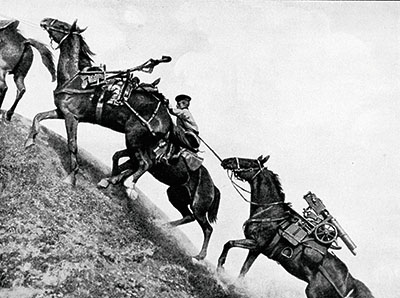
Colonel Georg Veith of the Habsburg Third Army recounted in vivid detail the horrors of the winter war in the Carpathians:
On 23 January we rushed forward into the icy hell of the Carpathian battlefield. We stormed the Uzhok, Verecke, and Wyszków Passes, but on the northern slope of the mountains, the troops encountered a blizzard. The reports from these days are shocking. Every day hundreds froze to death. The wounded that were unable to drag themselves forward were left behind to die. Entire ranks were reduced to tears in the face of the terrible agony.
Each night, the 21st Infantry Regiment dug in until the last man was found frozen to death at daybreak. Pack animals could not advance through the deep snow. The men had to carry their own supplies on foot. The soldiers went without food for days. At -25°C, food rations froze solid. For seven days straight, the 43rd Infantry Division battled overpowering Russian troops with no warm food to sustain them. For a full 30 days, not one single man had any shelter. Hardly a battalion on the Habsburg front consisted of 200 men as lines grew thinner and thinner. Battle-weary frontline troops were continuously being wrenched from one position to another to plug a newly formed gap. Medics and those not seriously ill or injured were called into service. A constant state of mass confusion reigned; a tremendous detriment to any military command. Apathy and indifference were gaining a foothold and could not be contained.




